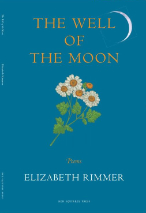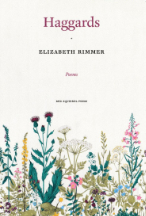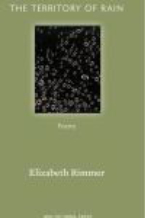Burned Thumb

The holy grail, distilled wisdom
of all the world, slips sideways
through the fingers of authority.
Never mind the years of waiting,
the great fish caught and gutted,
the dragon trapped in the pit,
the long simmered broth of herbs,
it always goes astray. The poet
is always that chance apprentice
sucking his clumsy thumb,
scarred, accidental, listening.
The burned thumb is a motif in many folk traditions – the stories of Taliessin, Siggurd, and most famously Finn MacCumhaill, by which a young apprentice inadvertently becomes able to understand the languages of all the creatures he shares the world with – something that resonates very powerfully with how I write. You can find a version of the story of the burned thumb here.
I was born in Liverpool, but for the last forty-five years I have been based in Scotland. I have published four collections with Red Squirrel Press, and have also produced a translation of the Old English Charm of Nine Herbs. As a poet, I’m most interested in the processes of creativity, ways of living on the earth, the sense of home, and how we build it, the links between language, place and community, traditions and migrations. My first collection Wherever We Live Now, (RSP 2011) and my most recent, The Well of the Moon (2021) deal with these issues.
While still at school, I had begun to write out of my childhood reading of ballads and folktales, mythology and fantasy. I liked the intrinsic connection between word and music, the bare, stripped-down style, the brisk pace, and the patterns of repetition and refrain. Far from being transported into a new magical world, I discovered new attitudes and ways of connecting with the one I lived in. This became both a sensual and a practical experience, and when I returned to poetry later, I grounded it in a practice of engagement with the natural world I call ‘walking the territory’ and based on the principles of permaculture. I dealt with this in my second collection, The Territory of Rain (2015) and with my particular focus on herbs in my third collection, Haggards (2018). My latest collection, The Well of the Moon, (2021), explored the myths we create about the places we live, inner wildness, community, poetry as conversation with the natural world, and the voices of women.
At university I studied Old English and Old Norse, medieval literature and the metaphysical poets, and discovered forms and patterns, structures and the enormous riches of the English vocabulary. About that time, I began to realise that poetry could be a way of making connections across many disciplines and modes of thought, and could open up a way of getting into the lived experience of intellectual ideas. I am very strongly influenced by the geo-poetics movement founded by Kenneth White, by early Celtic poetry and the Chinese Rivers-and-Mountains school, and by the monastic mystical tradition and the rhythms and cadences of the Bible.
I am currently exploring the poetry of inhabitation, and the Old English concept of ‘læc’, usually translated as ‘play’, or exercise of a craft or skill, but encompassing ideas of a communal activity, the numinous and the sacred. In 2023 I collaborated with artist and publisher Hugh Bryden of Roncadora Press to produce Charms for the Healing of Grief, a ‘book bracelet’ and limited edition poetry pamphlet.
From The Well of the Moon
Equal parts mystic and philosophical, her poems are nevertheless rooted in the observable everyday world. Colin Waters
The Well of the Moon
Hunting among the rushes, Finn comes
to the well of the moon, the brink
of water where poets believe wisdom
is revealed. The blend of water, light and air
is impossibly poetic, the waxing and waning
moon like inspiration, and those three
guardians, muses inevitably – Gregory
spares no cliché in this quest.
But still I buy it, because Beag’s daughters don’t
believe in Finn’s destiny, and grant his boon,
but throw his wisdom at him like dish slops,
douse him in it, a baptism into satire.
And no, he doesn’t get poetry, but the taste
of clean well water, and the language
of sleeping seas, bees, horses, an iris like
a thrown golden spear, the talking of rushes.
How to Contain Her
He is taking a swarm of bees. He subdues
the earth under his strong foot and claims it
for his own. He says his claim will stand
against hostility, or forgetfulness or those
of any other man. He flatters her, calls her
‘victory woman’, with her bright stinging sword,
her myriad of armies, but he means business.
His land is hers now, and she must take care of it.
She must sit here, grounded, never again
to fly free, wild to the woods. The boundaries
he sets are now the limit of her world,
her daily bread. He has claimed her.

From Haggards
The combination of ancient wisdom and modern activism in Haggards is a remarkable contemporary expression of what the word ‘womanly’ can mean. James McGonigal
Haggards
These are the places in between,
between the field and the mountain,
between the cattle and the sheep,
between the orchard and the road,
between the heather and the sea,
places where growth is curbed
by salt, or drought or altitude,
by rocks beneath, by standing water,
by wind, by fire, by lawlessness,
places for forgotten things, and things
no longer valued, the weeds and black bees,
the wrens and thrawn roots of Latin
the boys were taught in secret.
These are the places in between,
too small for the rich to care for,
where things grow stronger for neglect,
where questions thrive, and dreams, cut down
to the roots, grow hardy, come back strong.
Schoolish
The things which you learn with your hands,
your tongue, or your ears, the glimpses
at the edge of vision, are not the things
we want you to write down.
The things you learn by mixing, heating
breaking, stirring and waiting
are not of interest here. The things
you feel, or come to understand
in a leaf-fall, a bird flight, a sharp
look between two people on a bench
in the sun before one of them leaves,
you should keep to yourself. In this book
we write the proper names, and instructions,
copying carefully, respecting the authorities.
Marks will be lost for poor handwriting,
spelling, grammar and demotic vocabulary.
Draw your conclusions. Make quite sure
they are the right ones. Try not to care.

From The Territory of Rain
Here are poems that reflect an acute observation of the natural world; poems written with an authority derived from being immersed in the subject. Stuart B Campbell
Blanket Bog
Blanket bog clothes the land
like a black melancholy, shrouding
the slopes in the weight of its slo-mo layers.
Grudges and peat break down slowly.
Bones of old loves and hates
are kept intact for ever.
Sphagnum can absorb
twice its own weight in tears.
Crazy insectivorous plants
thrive on trapped flies and imagined slights,
and lost birds wail, raking through pools
and stirring the endless mud.
Keep it safe, keep it undisturbed.
Under these tons of peat and apathy
enough carbon is sequestered
to melt the last chips of polar ice
and burn up every one of us
on the whole raging earth.
Covered By Forest
Morning light is softened beneath the trees,
and the wind in the sycamore’s high branches
moves the leaves like rain. I stop,
and the whole wood flickers around me,
precipitates the dawn chorus to flowers
of song, of dunnock, chaffinch, wren and thrush.
Cold and damp are nothing now, and I hear
the stealth of feeding and finding prey, the romp
of squirrel , weasel-screech, the scream of hawk.
Moss grows over my knees. Wings make passage
between the tangles of my spreading hair.
Beneath my buried feet, the push and flow
of water draws me inward. I grasp and shatter
rocks between my toes. The filaments of my roots
touch bluebell corm, cached acorns, badger’s sett.
I do not flinch now from the small blows
of squirrel and tree-creeper on my hardened skin;
ant and caterpillar are welcomed to my bark.
I sway with tides of moon and weather.
Sun and wind and rain speak world to me –
I hold it all in my wide-spread boughs.

From Wherever We Live Now
‘This is musical and often startling writing, geopoetry at its best.’ Mandy Haggith
Glendalough
Bury me at Glendalough,
where the water falls like a white knife
between the black rocks,
and the huddled grey tombstones sleep
at the foot of Kevin’s tower.
I want to be by the lough’s wide blue sheet,
where kneeling Kevin
heard blackbirds and red squirrels
sing lauds and vespers
from his lonely stony bed.
I want to hear children come
to the new centre of pale wood and glass
to learn how books were cherished,
and monks sang in praise of a God in whom
their parents say they have no faith.
I’ll rest within the sound
from the bright red van selling hot dogs,
and the hawkers making money
from shamrock, and green stone rosaries
and whiskey-flavoured toffee.
Bury me at Glendalough
because my people know themselves there.
There, not at Tara, nor O’Connell Street
is where they know their origin,
and where they want to end.
Visiting the Dunbrody Famine Ship
Grief bubbles like rosin out of the pine
they built these stacked bunks from –
one to a family, and bring your own bedding,
each adult’s life packed into no more
than ten cubic feet, says the ticket, including
utensils for eating and drinking.
Bad enough in fine weather, queueing to cook
in their cold half hour on deck, but in storms
battened under hatches, chewing raw oatmeal and biscuit,
sweating, vomiting, pissing in the dark,
and the smell of loss and fear. The actors recall
a good captain, five deaths only the whole trip.
It’s the lists that really hurt. The database
remembers everyone, keeps them safe by name,
and age and occupation, by ship, and by landfall.
I look for my Foleys, Richard and two daughters,
my grandmother’s family, left Waterford
in 1873, and lost at sea, still lost.
It’s the way they tell you, as if they know
it’s you, crying in the dark for your mammy,
and the sweet taste of new milk, and sunlight,
and just to be still. They know those names mend a link
in the chain that leads us back to our dead,
and makes us whole, wherever we live now.
